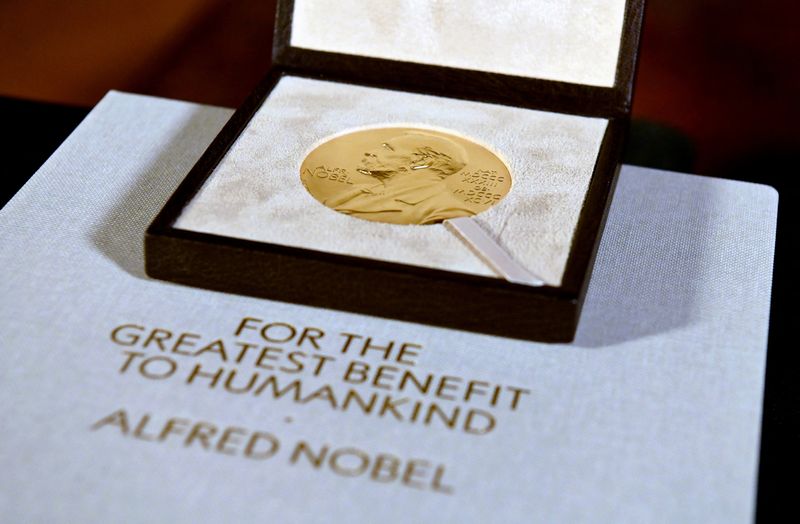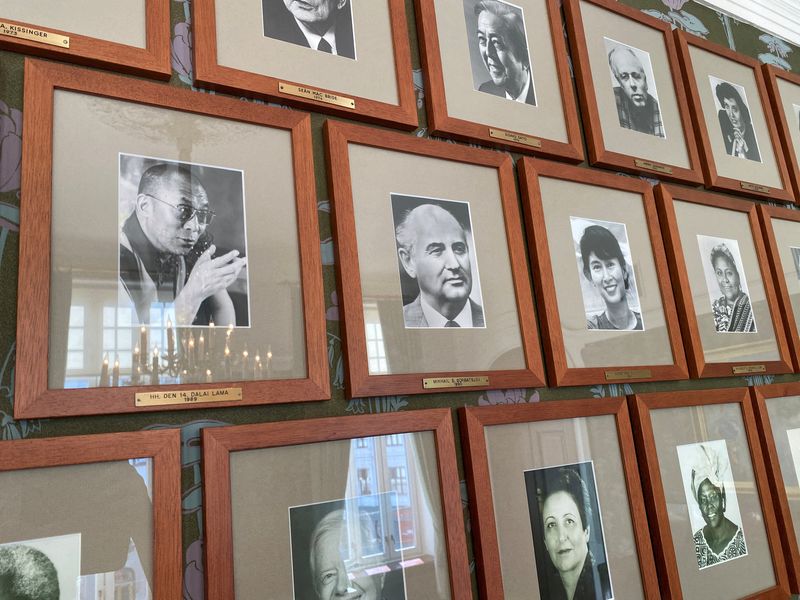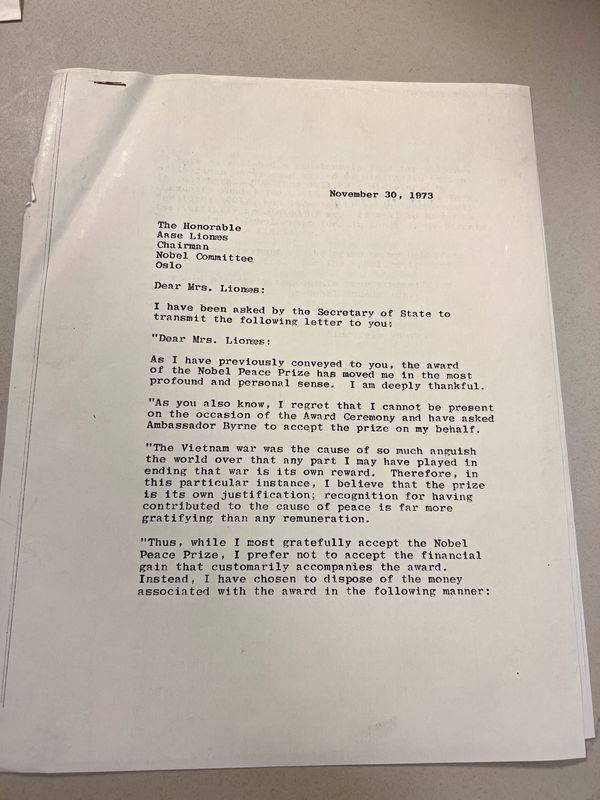By Gwladys Fouche and Ilze Filks
OSLO/STOCKHOLM (Reuters) – Ukrainian President Volodymyr Zelenskiy and Russian dissident Alexei Navalny are among favourites for this year’s Nobel Peace Prize, but experts say campaigners for women, Indigenous peoples or the environment could well steal the stage.
Given past form, the Norwegian Nobel Committee is also capable of a complete surprise in the Oct. 6 announcement.
Though bookmakers have Zelenskiy as a top candidate to join the illustrious list of laureates from Nelson Mandela to Martin Luther King, Nobel specialists believe that as a wartime leader, the Ukrainian president is unlikely to be named.
The imprisoned Navalny’s chances are lessened because Russian dissidents won last year and the year before.
A third bookmakers’ favourite is jailed Uyghur activist Ilham Tohti, though that would infuriate China. When jailed dissident Liu Xiaobo won the peace prize, Beijing froze diplomatic relations with Oslo for six years.
Henrik Urdal, director of the Peace Research Institute Oslo, said in a year marking the 75th anniversary of the Universal Declaration of Human Rights, the committee may decide to shine a light on the contribution of activists to peace.
A prize to Tohti or another activist in China would be a welcome focus on Beijing’s increasingly authoritarian rule, he said.
Urdal also cited Iran’s Narges Mohammadi, who campaigns for women’s rights and against the death penalty and is currently in jail; Afghanistan’s Mahbouba Seraj who, despite a ban from the ruling Taliban, continues to campaign for girls’ rights to education and other women’s rights and remains in Kabul.
“I think perhaps the most likely candidates would be human rights defenders,” he said.
‘DISINTEGRATING PEACE’
Thousands of people can propose names, including former laureates, members of parliaments and university professors of history or law. Nominations are secret for 50 years but those who nominate can choose to reveal their choices.
Last year’s prize, seen by many as a rebuke to Russian President Vladimir Putin, went to jailed Belarusian activist Ales Bialiatski, Russian rights group Memorial and Ukraine’s Center for Civil Liberties.
The Nobel body may also want to spotlight climate change, a topic the committee last addressed in 2007 in its award to the Intergovernmental Panel on Climate Change and former U.S. Vice President Al Gore.
“This is a period of disintegrating peace. At the same time, it’s the period when the pressure of a massive ecological crisis is putting its weight on us,” said Dan Smith, director of the Stockholm International Peace Research Institute.
“Climate change, clearly in some circumstances, leads to more conflict.”
Smith cited the Fridays for Future movement, started by Greta Thunberg, as a contender, as well as Indigenous leader Chief Raoni Metuktire of the Kayapo people in Brazil, who has for decades campaigned to protect the Amazon rainforest.
“Indigenous involvement in protecting the environment is really going to be fundamental to our prospects of surviving this current crisis,” Smith said.
Urdal agreed Indigenous peoples’ rights could be in focus, citing Victoria Tauli-Corpuz of the Philippines, previously the United Nations Special Rapporteur on the Rights of Indigenous Peoples, and Ecuadorean Indigenous leader Juan Carlos Jintiach.
Other potential laureates include an international body like the International Court of Justice (ICJ), the U.N. refugee agency UNHCR, its children’s fund UNICEF, or the International Committee of the Red Cross (ICRC).
(Reporting by Gwladys Fouche in Oslo and Ilze Filks in Stockholm; Editing by Andrew Cawthorne)


